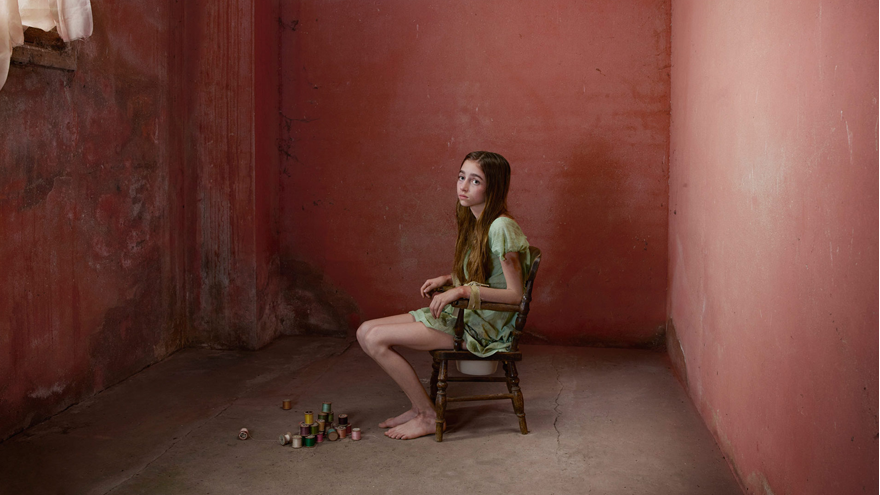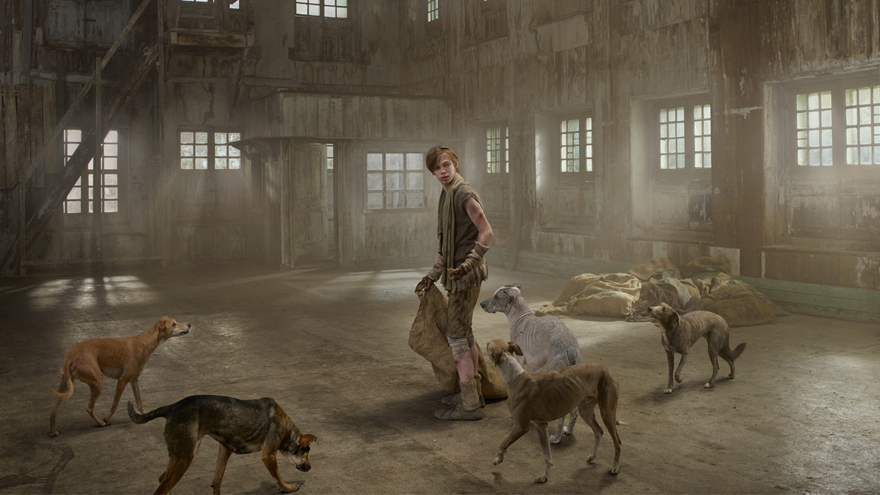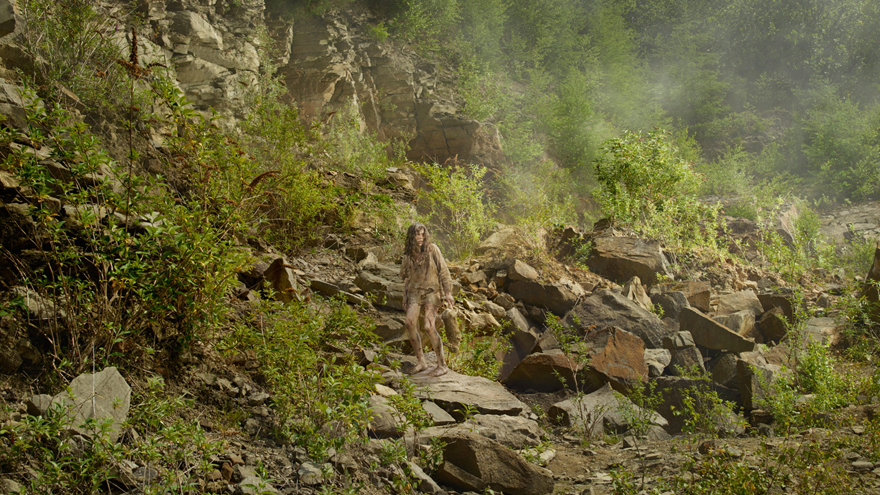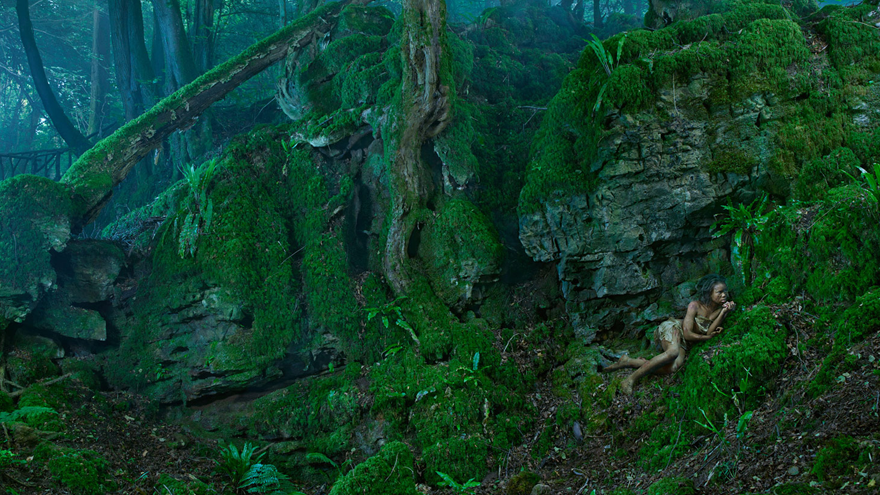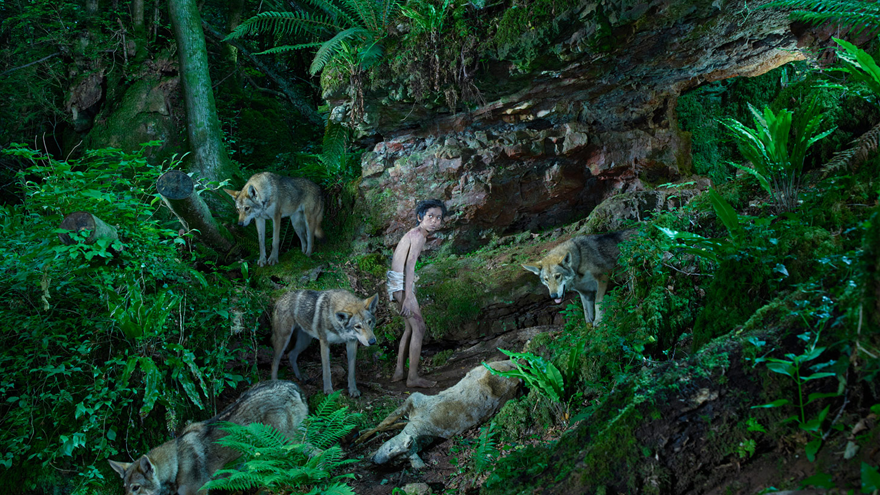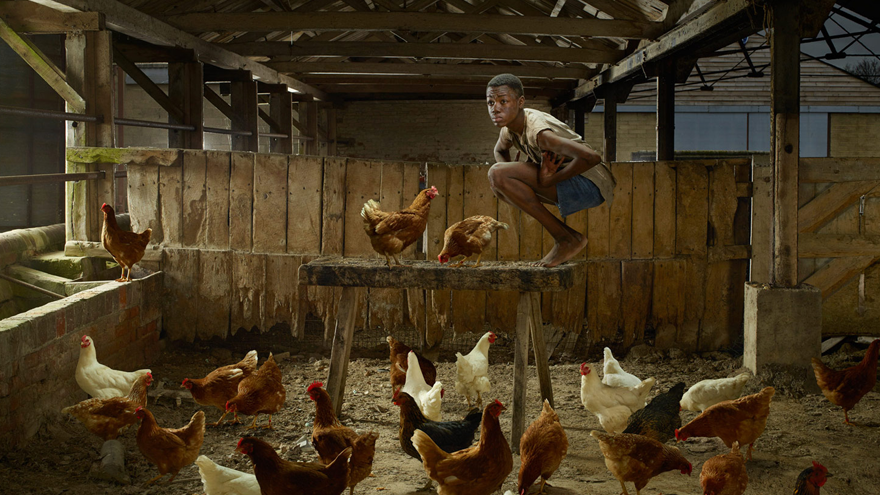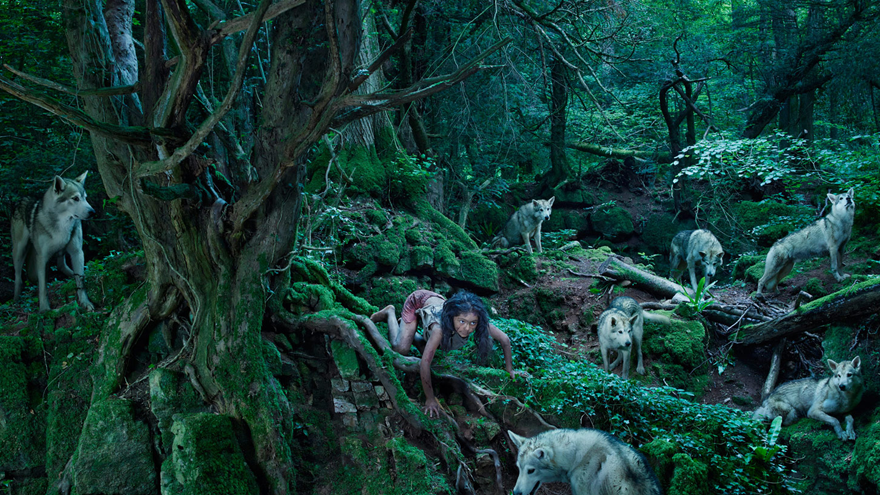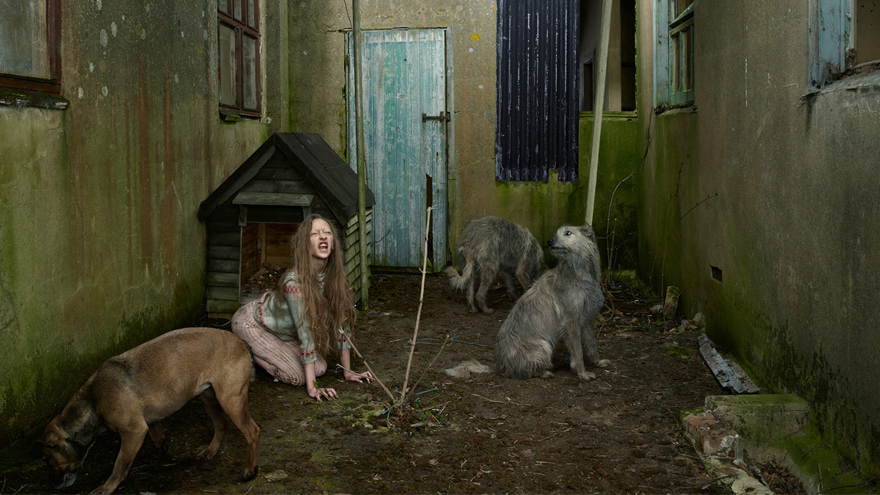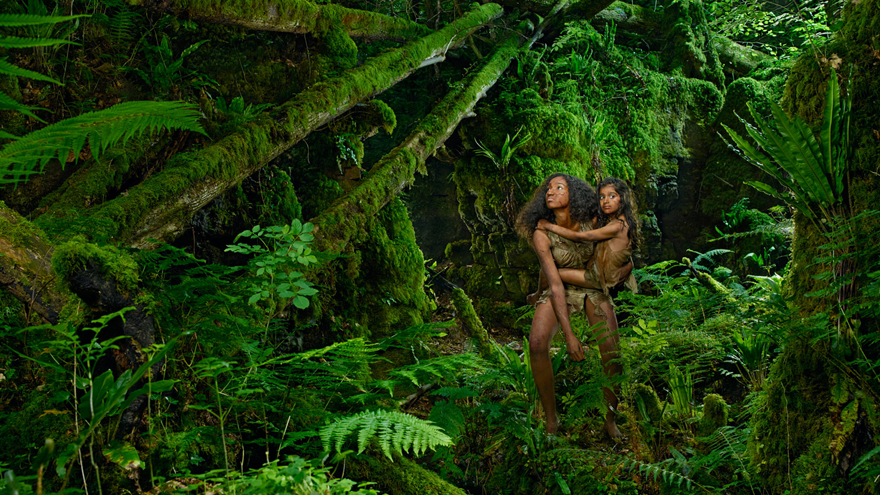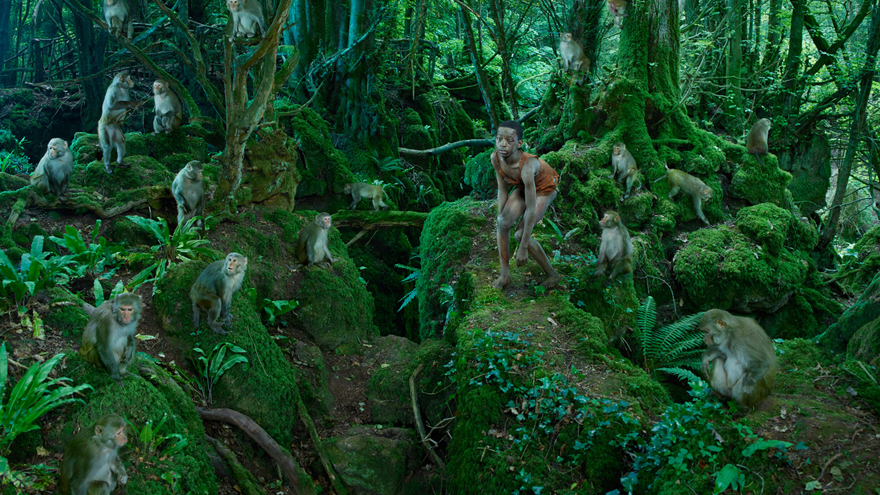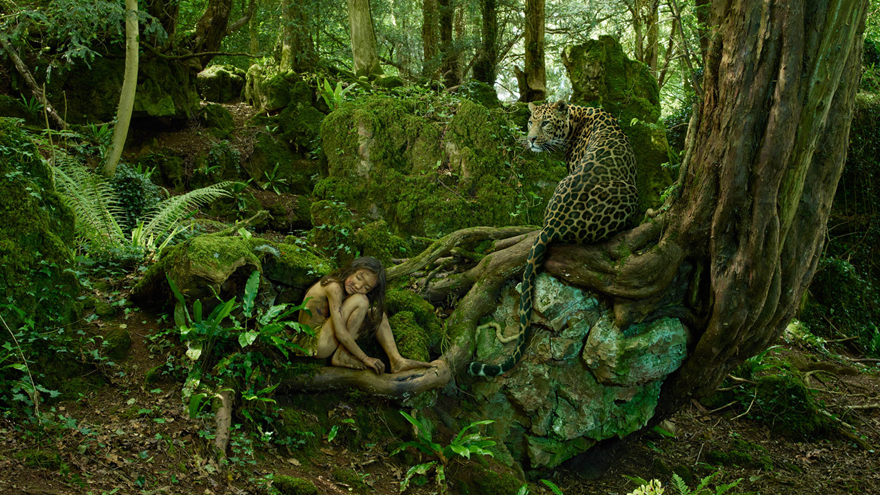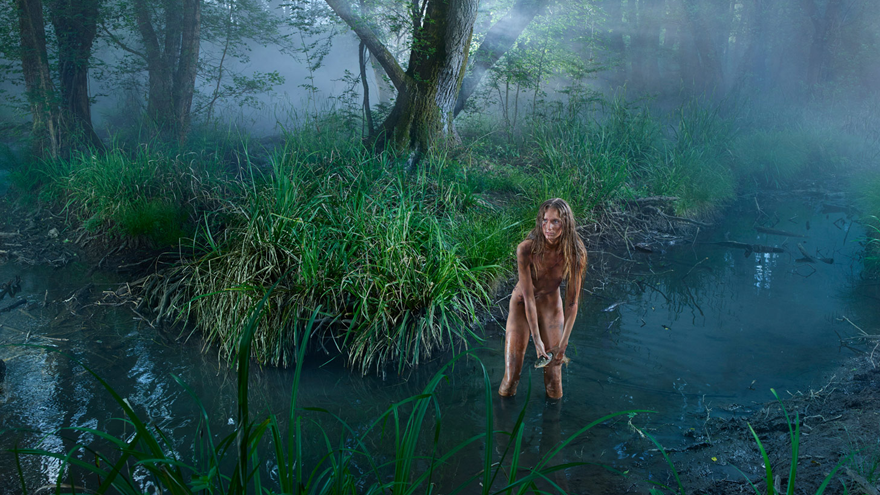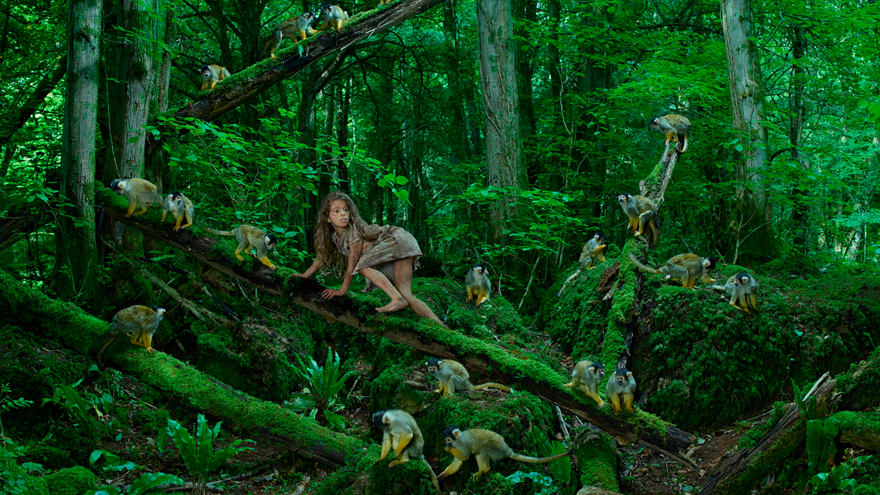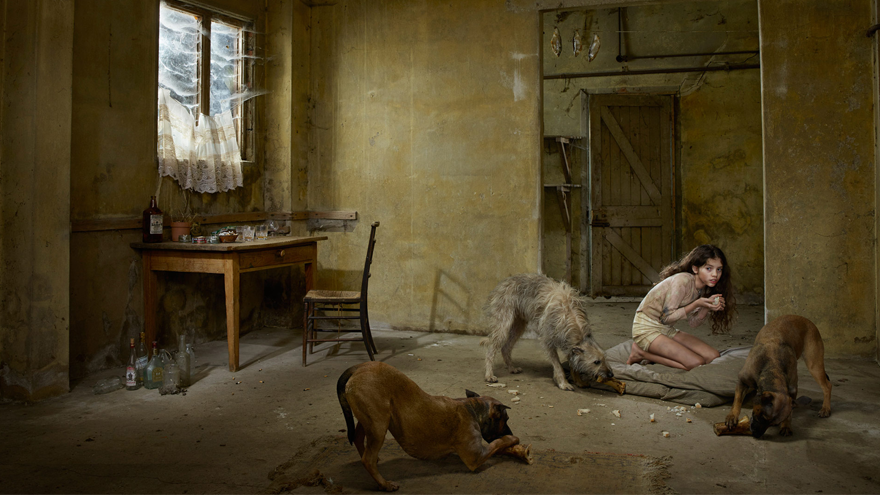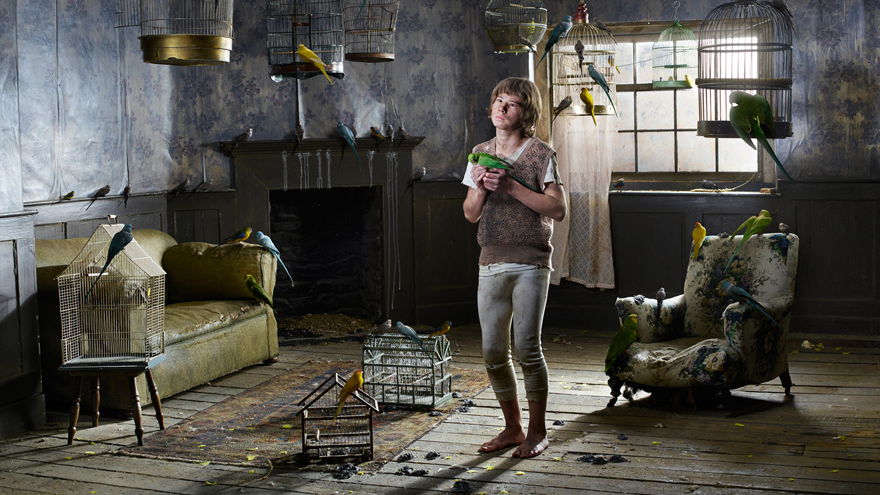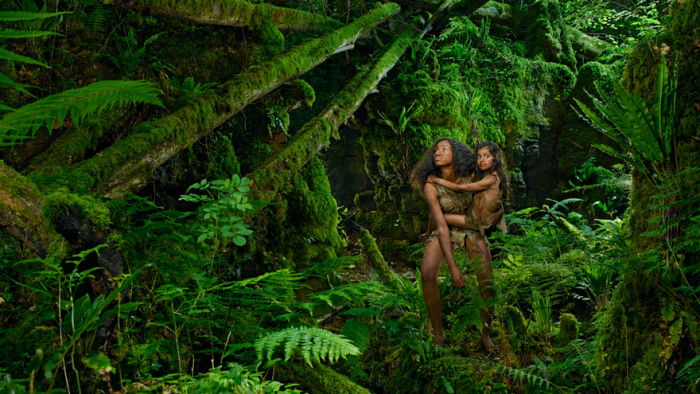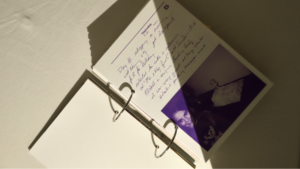Feral Children is a photo series by London-based photographer Julia Fullerton-Batten. As a seasoned fine-art photographer and mother, she decided it was an important subject to explore. What happens to children who were abandoned at an early age and survive by adopting more brutal mannerisms? In a number of chilling cases across the globe, youngsters who were deserted by their parents or forgotten by civilisation turned to the forces of nature.
The photographer explains the term Feral Children and what it really implies for the state of the child’s mind. Living in the wild (and indeed being accepted by wild animals) stalls the child’s mental development in a way as they start to emulate their animal cohort’s behaviour.
“A feral child is one which has lived isolated from human contact, often from a very young age. As a result the child grows up with little or no experience of human care, behaviour or language. Some were cruelly confined or abandoned by their own parents, rejected perhaps because of their intellectual or physical impairment, or the parent’s belief that this was the case.”
Real life cases of feral children arise from many different circumstances, all of which are damaging to the child – including the instances in which the child does not survive the utter neglect. The photographer chose to depict the variety of these instances in different settings.
“I chose 15 cases to portray. These range from a girl who, as a toddler, was confined by her parents to a potty chair for ten years to that of a baby boy who was stolen by a leopardess and found three years later in the company of her and her latest cubs. My idea was not to replicate the exact scenes, but to interpret and duplicate the feelings and actions of each feral child living their experience.”
“Some spent most of their time indoors, even in close proximity to or inside human habitation. Yet others spent the duration of their feral life outside, exposed to the elements, depending on their own ability and that of their wild companions for shelter and food and water, not to mention constantly having to avoid danger and health problems,” says Fullerton-Batten.

